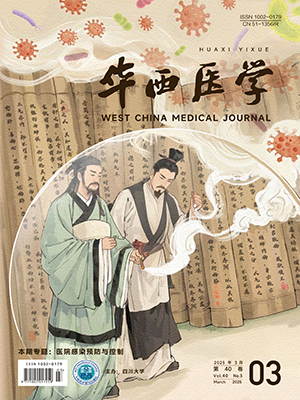| 1. |
李文广, 王勇, 毕素萍, 等. 血液稀释并控制性降压节约输血临床应用[J]. 中国输血杂志, 2001, 14(3):157-158.
|
| 2. |
单闯, 曾因明. 血液稀释与控制性降压的联合应用[J]. 国外医学:麻醉学与复苏分册, 2002, 23(4):246-248.
|
| 3. |
庄心良, 曾因明, 陈伯銮. 现代麻醉学[M]. 3版. 北京:人民卫生出版社, 2009:792, 1689, 1738.
|
| 4. |
梅弘勋, 孙峰丽, 王恩真, 等. 中度急性高容量血液稀释联合控制性降压对颅内动脉瘤手术病人血流动力学和脑血流的影响[J]. 中华麻醉学杂志, 2001, 21(9):521-524.
|
| 5. |
程明华, 李流, 方雄水, 等. 急性超容性血液稀释与控制性降压联合应用的可行性研究[J]. 中国现代医学杂志, 2003, 13(8):70-73.
|
| 6. |
周东红, 邱承忠. 急性等容血液稀释与控制性降压在脊柱外科手术中的应用[J]. 实用临床医药杂志, 2004, 8(2):62.
|
| 7. |
何曙. 急性等容性血液稀释与控制性降压在脊柱手术中的应用[J]. 中国现代医学杂志, 2005, 15(7):1106-1108.
|
| 8. |
单闯, 吴国荣, 刘诚, 等. 急性高容量血液稀释复合控制性降压用于骨科手术的临床观察[J]. 中华麻醉学杂志, 2002, 22(3):183-185.
|
| 9. |
Singbartl K, Schleinzer W, Singbartl G. Hypervolemic hemodilution:an alternative to acute normovolemic hemodilution? A mathematical analysis[J]. J Surg Res, 1999, 86(2):206-212.
|
| 10. |
刘松, 王奕, 王慧萍, 等. 急性高容量血液稀释与控制性降压对老年患者凝血功能和血液流变学的影响[J]. 临床麻醉学杂志, 2009, 25(10):848-850.
|
| 11. |
杜建龙, 陈汉强, 周爱娟, 等. 急性等容血液稀释联合控制性降压在全髋关节置换术中的应用[J]. 中国输血杂志, 2005, 18(4):311-313.
|
| 12. |
叶占勇, 刘合年, 周乐顺, 等. 急性等容血液稀释联合控制性降压用于颅内肿瘤切除术的观察[J]. 中国输血杂志, 2004, 17(6):435-436.
|
| 13. |
陈斌, 唐自跃, 陈果, 等. 急性等容血液稀释联合控制性降压对腹主动脉瘤手术的血液保护作用[J]. 四川医学, 2004, 25(9):1008-1009.
|
| 14. |
郑曼, 张萍, 张媛, 等. 急性等容血液稀释联合控制性降压及氨基己酸在脊柱侧弯矫正术中的应用[J]. 东南大学学报:医学版, 2007, 26(5):362-365.
|
| 15. |
李莉, 刘怀萍, 王忱, 等. 急性等容血液稀释复合控制性降压在颅脑手术中的应用评价[J]. 汕头大学医学院学报, 2006, 19(3):169-171.
|




